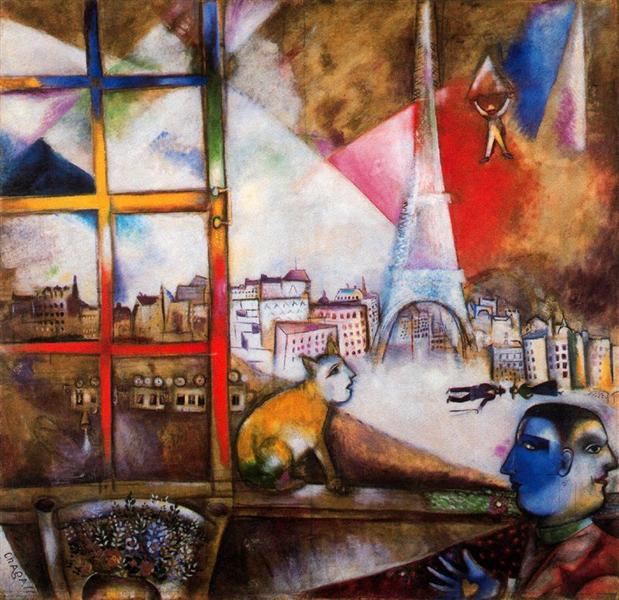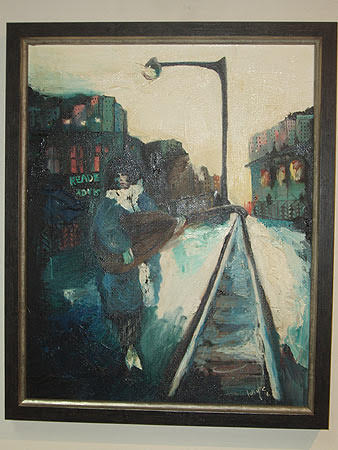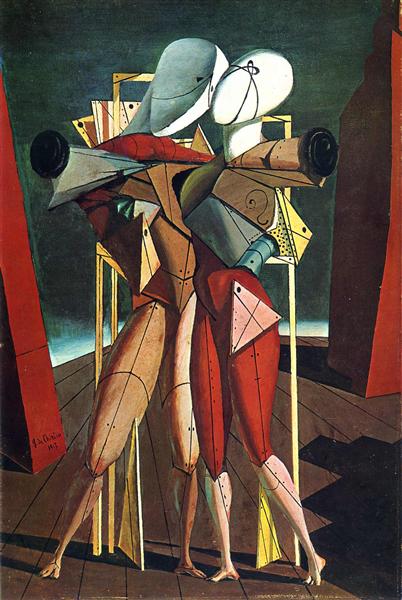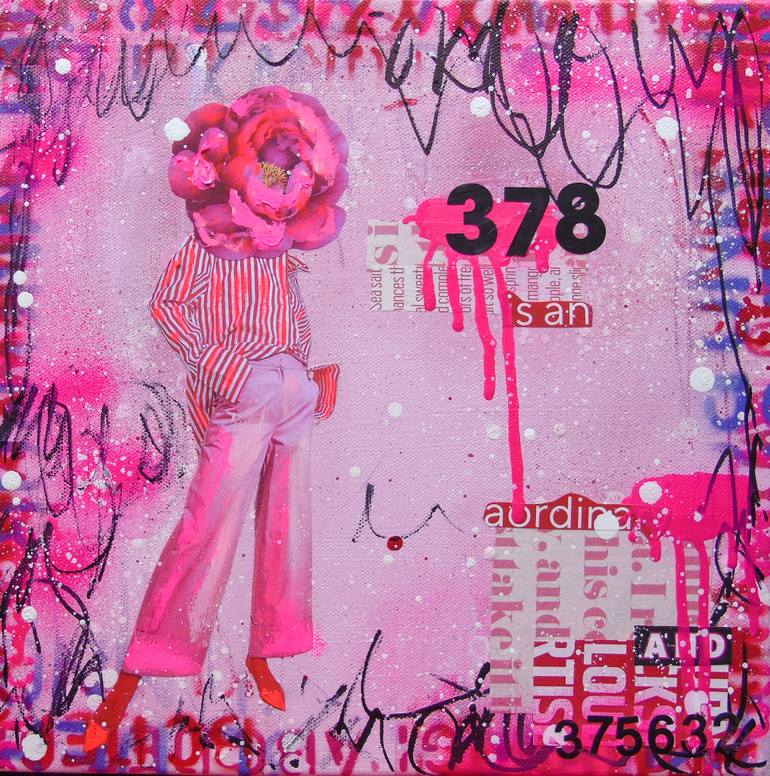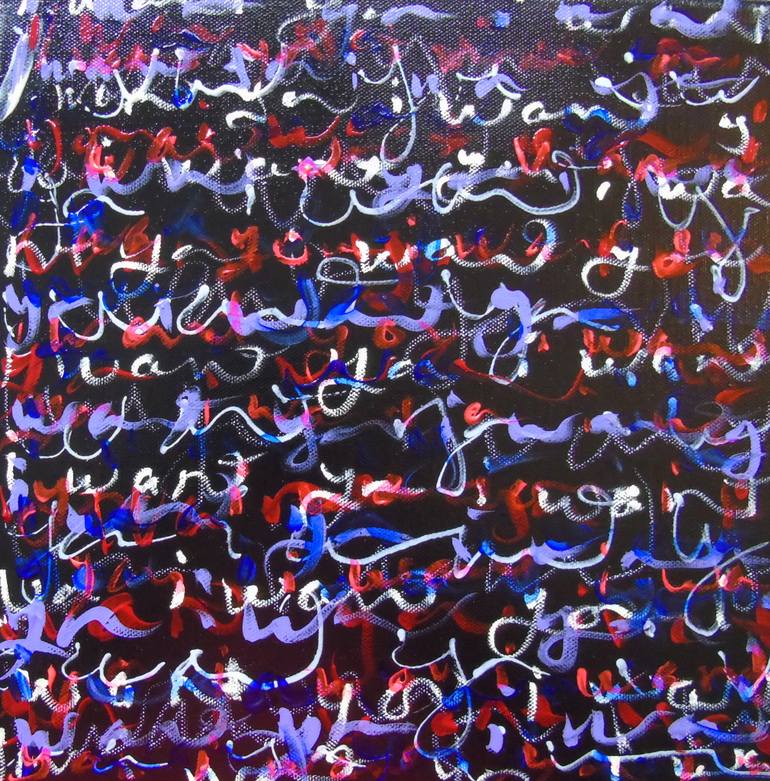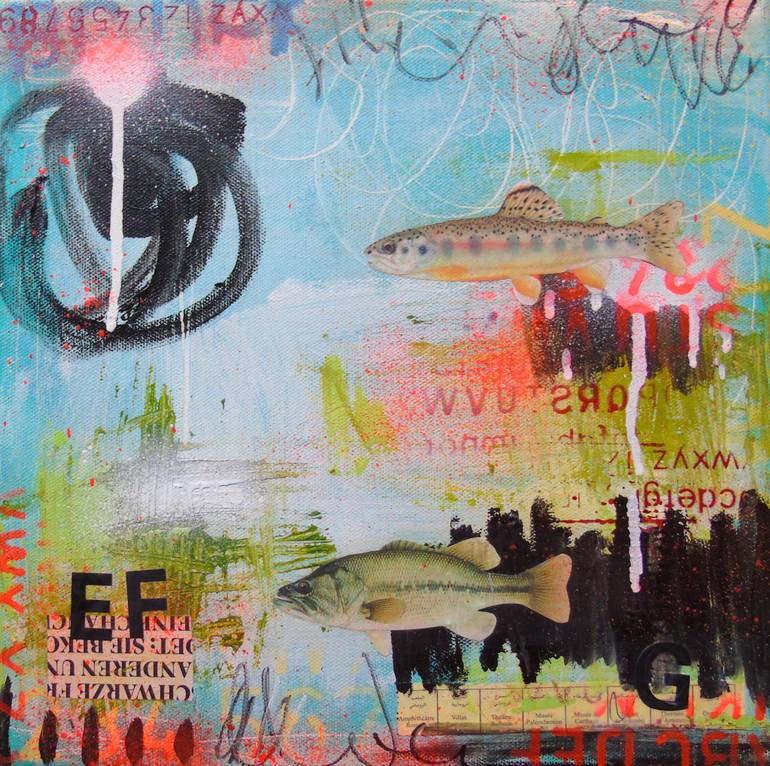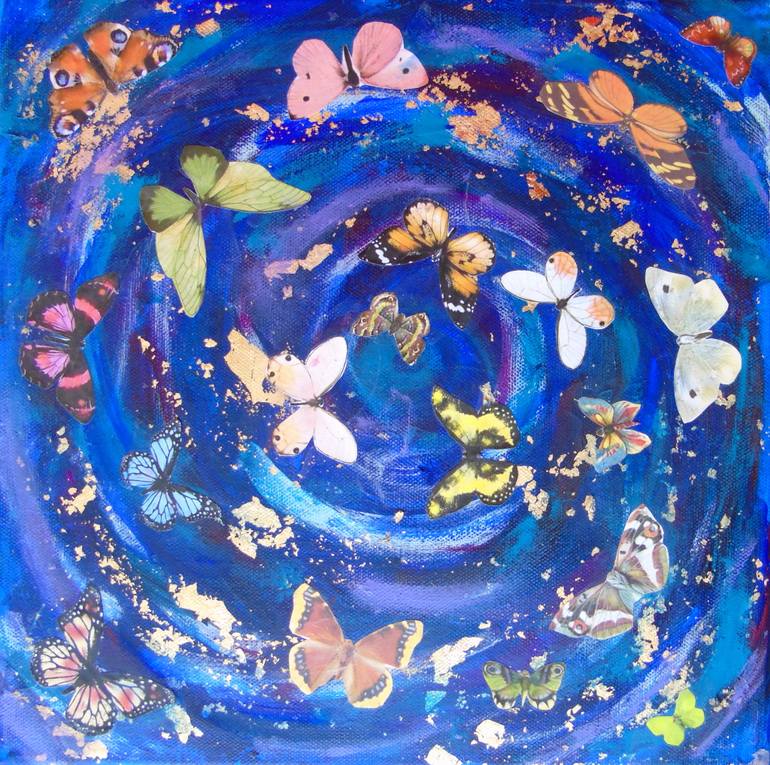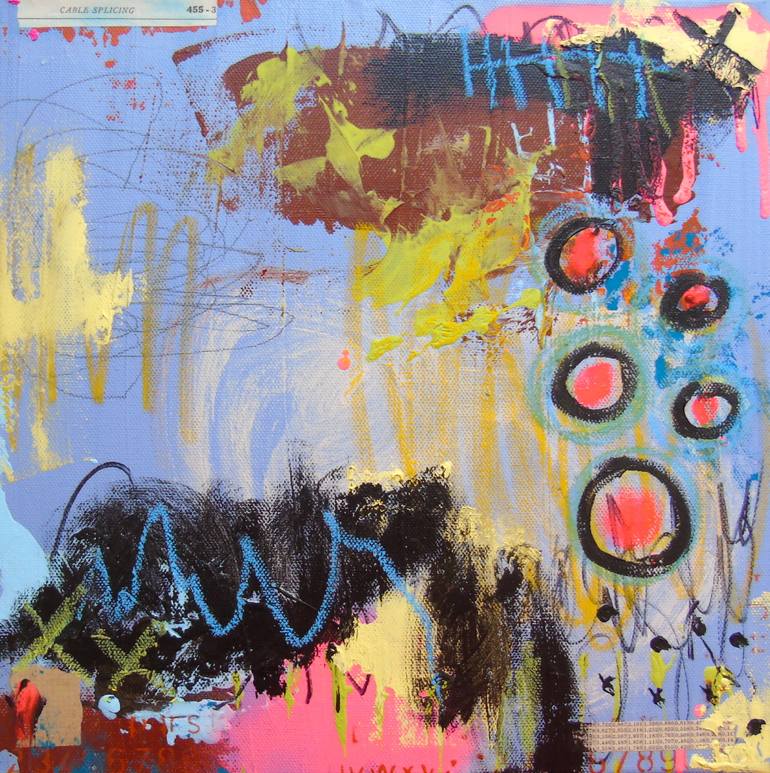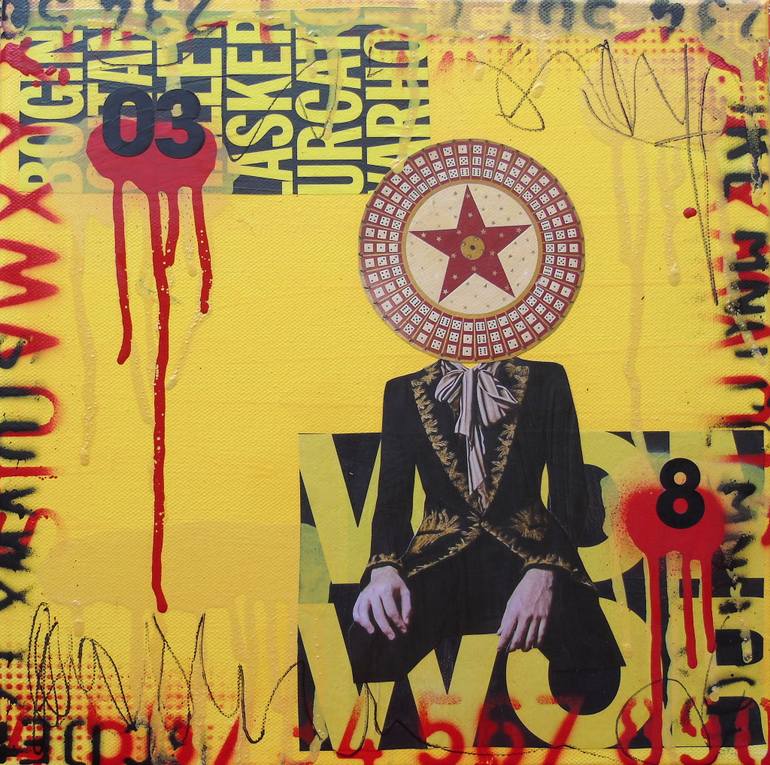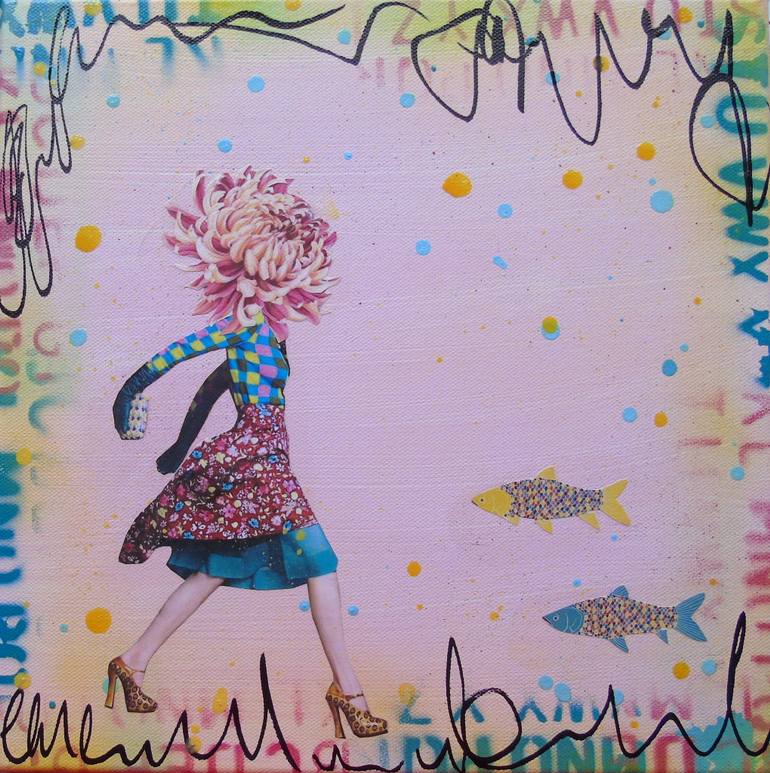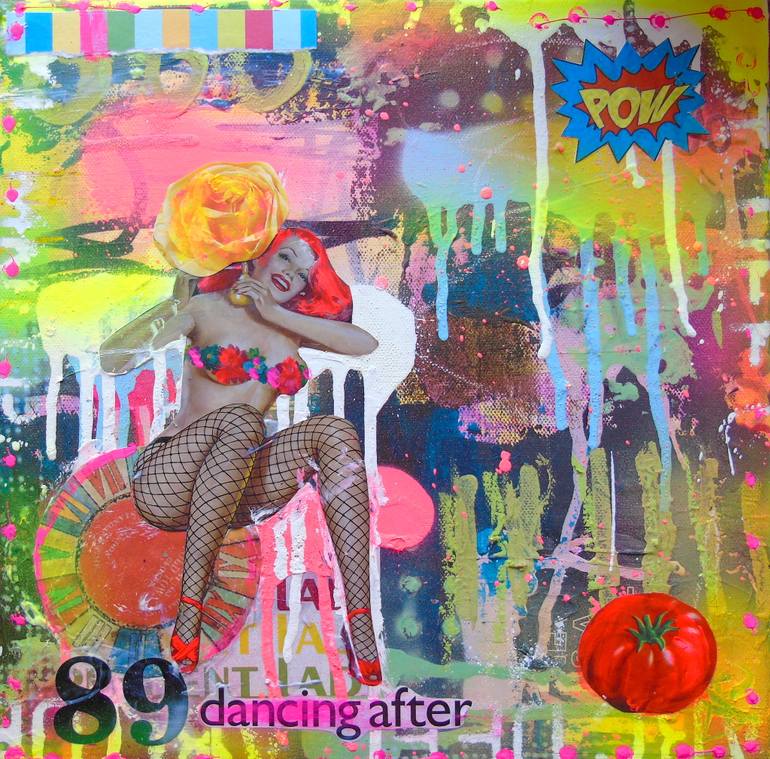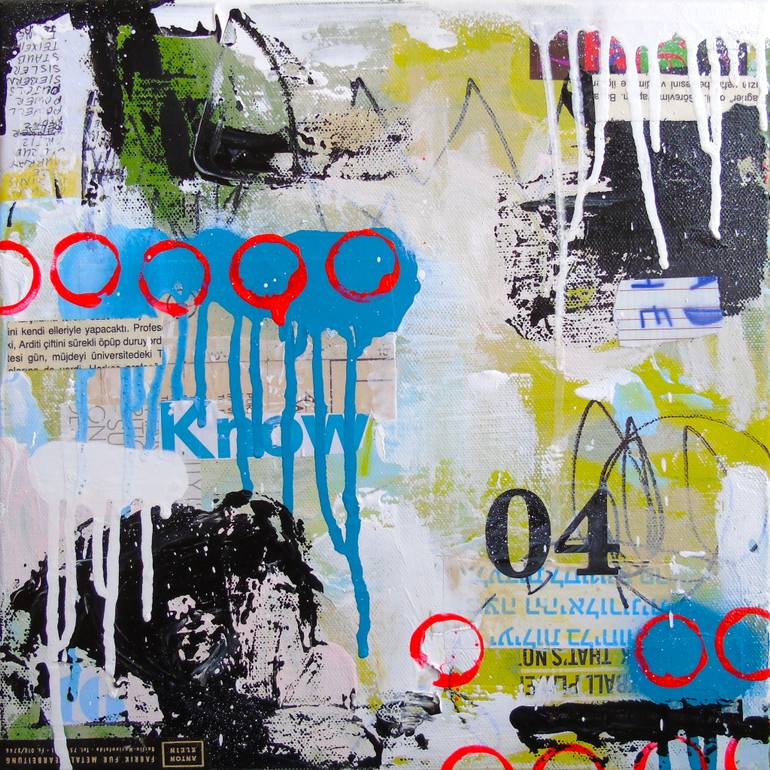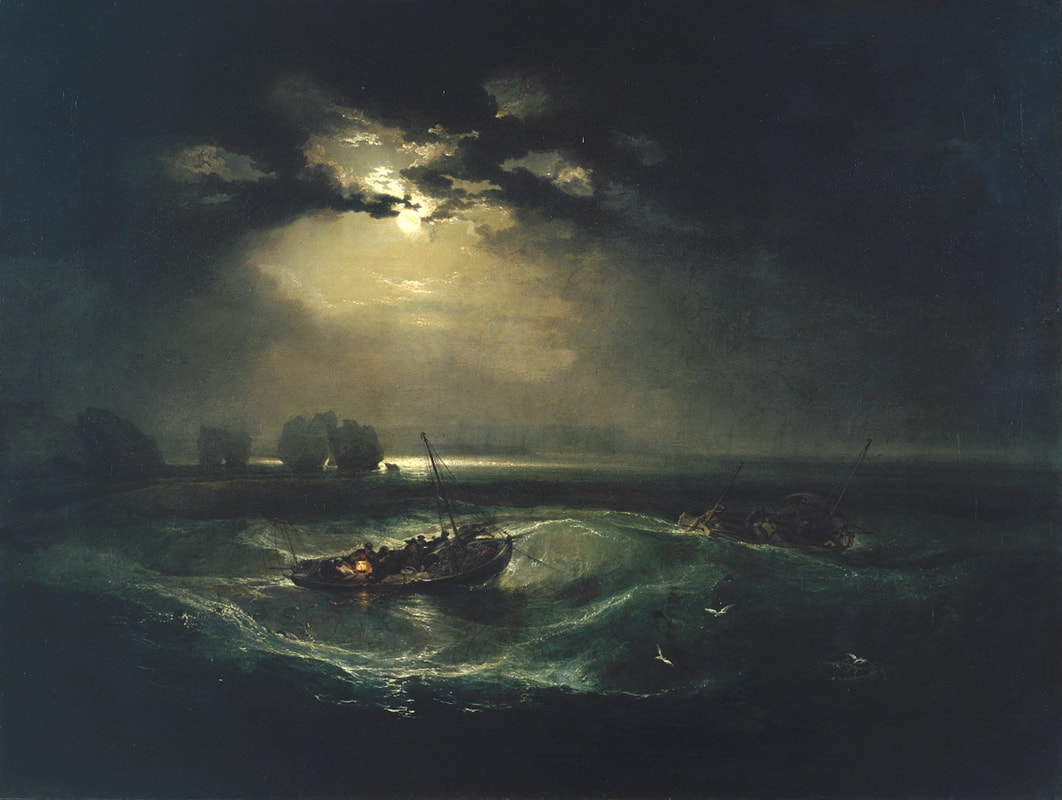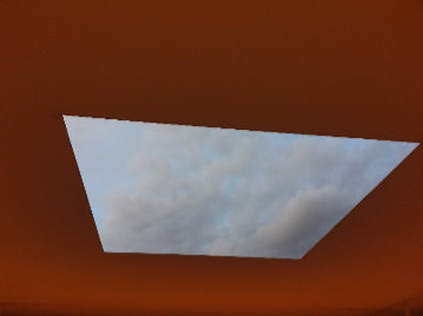|
Paris through the Window
Our window, this colourful life we share. Surprising. Or is middle age always surprising? It feels swampy, landlocked with a view in every direction but no opening. That’s why it’s so important we have this one view, our view, our recent history or now, you would say, because we’re trying to keep our heads here by the window of today, whatever the view. We’re trying to stay in this up and down dimension, the depth of the present, learning the point of things that has nothing to do with a horizontal story of me or you. I dreamed last night that you’d lost an arm and I still loved you, loved you so much, and so I learned that I could forgive myself too for weakness, doubt, and complication. You were me and I you because I also needed to see that you would still love me too. Should I wish you had said it, that I wouldn’t have had to see it for myself? Words matter more to me than to you. What are words to a heart in the hand, a tractor-beam animal loyalty? You’ve been part feline to me for a while, affectionate, at home, but still wild in the eyes, slightly acrobatic around the house, occasionally ironic in movement, rarely very serious, light and many-lived without looking it—resilient. My face is cold, classical, Helenic. Yours is gentle and un-cold even though it’s blue. How do you do that? This is the kind of question you see in me. I think about things with serious black eyes. You drop flowers from your lips. But there’s also this light yellow glow in me I’ve just begun to see reflected in the Paris windows and parachuters sending me thank-you notes. We often stand and look out the window. I thought it was for the view, but it’s for this image of us, the waking dream we create to see what we need to know. Elizabeth Paul Elizabeth Paul’s chapbook Reading Girl is a collection of ekphrastic prose poems based on paintings by Henri Matisse. Other work has appeared in Cider Press Review, Unbroken Journal, Duende, and elsewhere. Liz served as a Peace Corps volunteer in Kyrgyzstan and currently teaches at George Mason University. Find her at elizabethsgpaul.com.
0 Comments
Reader Advisor
He painted it as though Watteau had seen The Myrtle Avenue El at twilight Just after rain had glazed the wood to a sheen So that the platform mirrored a burning sky. On the platform’s glass he stands, a Harlequin, At vanishing point: rails glazed by dying light A gigantic lamppost threatens like a gibbet, Night falling fast on buildings now exhibits Surprising light that winks from the last few windows Except for the single one of the Reader Advisor Who is always home, you will never catch her dozing. Has Harlequin consulted her? Is he wiser? After putting his last question, is he closer? Prepared to strum his mandolin, on fire, He waits for Columbine on the next train. But does he know there will never be a next train? For the Myrtle avenue El, it is long gone but the Reader Advisor is always home. Frank LaLuna Frank is a 75-year-old retired Hematologist Oncologist who grew up in Brooklyn. He is an unpublished writer of poetry and fiction who hopes to be published before his demise. Alouette, Au Lapin Agile
You like visiting the famed cabaret. visited, as well, by Utrillo, Picasso, and others famed in former days, their paintings hanging there, brushed by Yesterday’s collected dust and smell of cooking grease. What trusting tones from muted talk, what pretty French chansons! What press of crowds and squeezing onto benches hard! And seemingly Picasso revisits, and Hemingway’s seated there—and from songs at the center you recall events told in childhood fables. And you muse on that thief who made off with many of your best memories. Carole Mertz Carole Mertz has poetry and critiques at various literary journals, including Ascent Aspirations, Arc Poetry (online), Conium Review, CutBank, Eclectica, Indiana Voice Journal, Mom Egg Review, Prairie Light Review, Society of Classical Poets, South 85 Journal, World Literature Today, and The Write Place at the Write Time. She enjoys spending as much time out of doors as possible, riding bike, and reading in Italian. I Just Wanted to Write About De Chirico
who, with a shrug of the wrist, ducked away from the whole heaving weight of Homer’s glance, leaving us to decrypt the anxious crisis of these figures huddled on their parapet. Rootless and inorganic, buttressed and shod, they stand effaced above the sunless plaza. Meaning: here is landscape sans reference, framed and fraught, a map composed only of itself. And yet — these neuter objects, flat-crotched and eyeless, retain just enough of their stance and tilt that they still read as guileless blazons of affection. I want heraldry of a similar stripe — two mannequins displayed Or, a sloped neck of marble and wood — this spindly apparatus of life without life. Giorgio, leaning on the wrong side of the canvas, understood this: that the urge of motion stands orthogonal to happenstance. The spirit pawing always at the edge of porosity. That even as Troy resumes its rude intrusion, we step away on the delicate feet of birds. Anurak Saelaow Anurak Saelaow is a Singaporean poet and writer. His work has been published or is forthcoming in Cha: An Asian Literary Journal, Hayden's Ferry Review, Quarterly Literary Review Singapore, Eunoia Review, and Ceriph Magazine, amongst other places. He is the author of one chapbook, Schema (The Operating System, 2015), and holds a BA in creative writing and English from Columbia University. 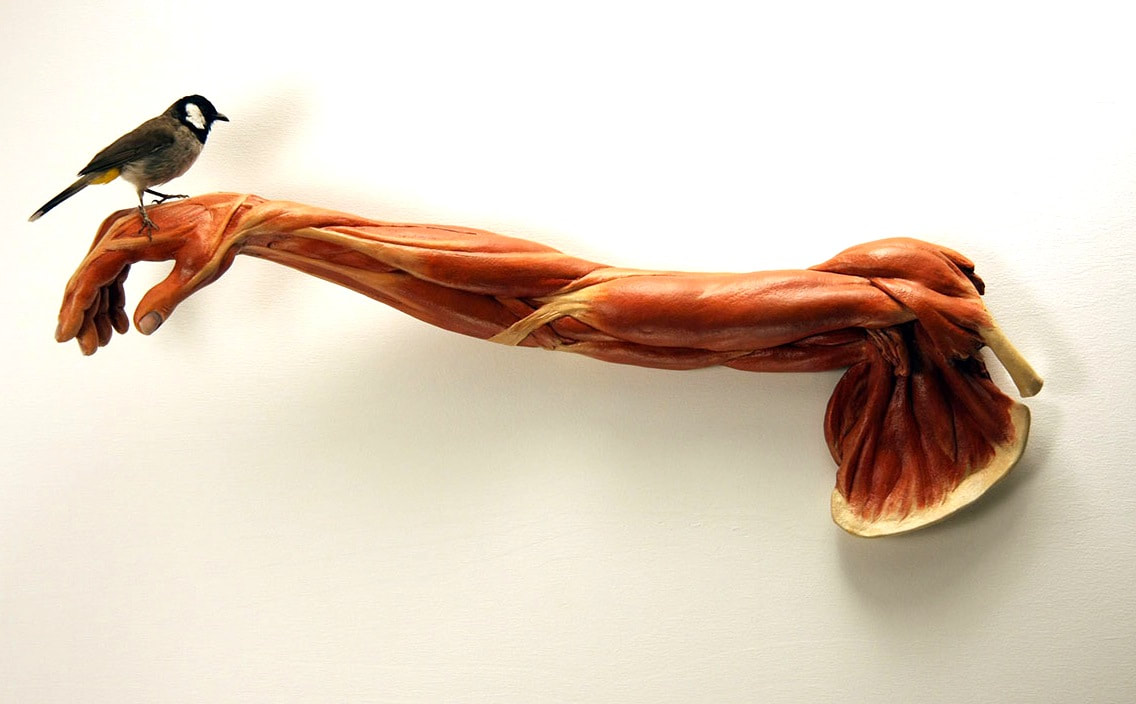 Premonition, by Dirk Staschke (USA). Contemporary. Premonition, by Dirk Staschke (USA). Contemporary. Lightning My museum bird pauses in the wise hypervigilance of birds, on the sculpt of a flayed arm. The arm poses, hyperrealistic, in Second Position, stretched horizontal from the missing body, hand curving down from the wrist, à la Michelangelo’s Adam, the thumbnail a postmortem lilac. Bright muscle strands shade from brick red to terra cotta to clean egg-shell tendon. Oil paint on clay, the placard says. The arm’s slick shine is that of a rubber anatomical model on a stainless steel countertop in a windowless examination room. He builds an impossible scaffolding of reasons to forgive her. He was always feeble in self-defense. Her knives were painted with butterflies. Now the world is a wall of thorns. The bird’s feet: anisodactylie—3 toes fore, 1 aft—lizard feet evolved into dainty twigs. Note: a bird is incapable of sin. No hands, no sin. He talks to birds, sucks cherry cough drops by the bag. He retreats into the softness of animals, nestles into the fur of their bellies. The arm and its bird make three shadows on the blank museum wall. The smooth-feathered flank almost breathes, the neck nearly twitches and turns, the eyes of oily black glass glisten with benevolence. He watches lightning from the rooftops, and has taken to eating sawdust in the evenings. He is the town snake-cuddler. In the long emptiness of the day he dreams he will be carried away, over fallen-down neighbourhoods, into far green fields strewn with skeletons. Ryan O’Connell Ryan O’Connell is a retired U.S. Army warrant officer, undergraduate student and apprentice writer at Portland State University. He is writing a nonfiction account of his experiences as a medevac helicopter pilot in Afghanistan. Dear Readers, Writers, and Friends,
I think you will all agree that The Ekphrastic Review is a special publication. We are one of the only outlets that is dedicated solely to publishing writing inspired by visual art, and we are a unique community of poets and artists who have become friends. We are committed to promoting a wide range of poetry, prose, and art. Our writers range from young adults to Yale-published writers. We have featured first time poets, and award winning masters. Most of our submissions still come from the USA, but we are open to and have published ekphrastic writers from all over the world. It's an exciting journey! You know where this is going: we want money. I rack my brains for ways to monetize The Ekphrastic Review in some way. I certainly don't expect riches from a literary journal. I also didn't expect that it would grow to take 40 to 60 hours of time each and every month. I love it, but confess to being overwhelmed. I promised when I started the journal it wouldn't be another fly by night literary blog, but something for the long haul. I refuse to charge unpaid and underpaid writers "submission fees" but it takes A LOT of time to read through, sort, and respond to submissions (and publish some of them). This step would cut down on the number of submissions and on submissions that are inadequately researched and targeted (we still get tons of poetry and essays from writers who don't understand our ekphrastic mandate.) But I think ultimately it is unethical and I won't do it. I have considered small subscription fees to readers, but feel this would ultimately harm our goal, which is to freely and widely promote writers of ekphrases and the art that inspires them. I can't bear to make the talent in our beautiful journal ugly through Google Ads other clickbait crap. I thank those who have used PayPal or Patreon or mailed a check, or who have purchased artwork from me. In the spirit of full disclosure, we earn about $10 a month through Patreon at the moment and have had about $600 in art sales or donations in support of the journal since 2015. Ultimately, as an artist what I do best is make art and I enjoy sharing it with ekphrastic readers, who also love art. So in brainstorming a fundraiser for The Ekphrastic Review, I have decided to offer a crazy promotion on my square foot artwork line. All sales from the promotion will be used in support of time and promotion spent on the journal. The square foot artworks have recently launched at www.squarefootartbylorette.ca. For one week only, they are available for $150 Canadian dollars flat (regular $250.). Shipping is free. Use checkout code EKPHRASTIC100. If you want to purchase two or more, thank you. Please order them separately to get the discount from each listing. My goal is to sell 20 pieces today through August 31. You get an awesome discount, some original art, and the chance to support your favourite literary and arts journal. If you would like to support us in any other way this week or anytime, you can PayPal a gift to the email [email protected]. We are grateful for gifts of any size! Many thanks. If you would like to mail a cheque, kindly email me for a snail mail addy. Please consider helping us reach our goal. At least stop by www.squarefootartbylorette.ca and browse the 180 originals, all sized 12x12", and see if anything speaks to you. My artwork shows regularly in other literary journals, in my home city of Toronto, and has been exhibited as well in Edinburgh, Chicago, Tunisia, Mexico, Brisbane, Vancouver, and is collections around the world. THANK YOU. Lorette C. Luzajic, editor, The Ekphrastic Review Full inventory of square foot collage paintings: www.squarefootartbylorette.ca/12x12-originals.html Checkout code: EKPHRASTIC100 Elegy
as if the piano loosened the power of god-breath to shatter like a crystal chandelier into this belly-releasing crush and groan as if the hum of ice-lament this artic elegy unhooked the glacier descending in beauty across the cold keys of time’s shoulder crowding the mountainous white sky with awareness as if a platform afloat a steely churn of sea and a man nimble-handed alone searching his life equipped with a concert jacket and life preserver might break barriers of sound to calm this ache and call back the calving iceberg as if his lush chords must have been born for this. Sandra Fees Sandra Fees is the author of two chapbooks, The Temporary Vase of Hands published by Finishing Line Press in 2017 and Moving, Being Moved by Five Oaks Press also in 2017. She resides in Reading, Pennsylvania, and is 2016-2018 Berks County Poet Laureate. Her poetry is forthcoming in Michigan State University Press’s Poets Laureate and Social Justice Anthology. Youtube: Elegy for the Arctic, by Ludovico Einaudi (Italy). 2016. Football is My Wife, Baseball is My Mistress (Ode to Deion Sanders)
Score. 1989 Rookie. is what the top of your first football card says. Deion Sanders Cornerback at the bottom, a Falcons helmet, the old, red one with the black logo. You’re wearing a black Falcons hat, black logo and the white jersey with red numbers. “This is the outer manifestation of an inner condition,” you’re thinking through your pensive stare. Football player in the 80s jersey with the 90s hat, football player in a football jersey with the baseball hat, caught between worlds-- Reaganomics flash and Clinton Era...flash. Jerri curl bouncing off your neck in still frame, moving and statuesque, pensive smirk, wondering how it’d feel to get a hit in the World Series and an interception in the Super Bowl, calculating the feasibility of helicoptering from centre of the outfield to the corner downfield.1 Torn between your wife, who prefers football so you can spend more time with your family and your mom, who prefers baseball so you’d be less likely to get hurt and your father, who prefers you do both, so you could show the world how good you are. The odd bounce of colours in the cardboard frame, the odd bounce of the ball, dancing in stadium corners, you spinning towards third before the spinning fielder can even gain his equilibrium. The excitement of your triples balanced by, the excitement of your punt returns defenders grasping at air, spinning into nothing, losing equilibrium the odd bounce as you strut into the end zone balanced by the odd bounce of your legacy: New York, San Francisco, Dallas, Atlanta. A few other stops along the way yet these are the high points as you high stepped in two sports into sports immortality. Nick Bush 1 On October 11, 1992, Sanders famously played a football game in Miami then took a helicopter and a private jet to Pittsburgh to a game that would helps his team make the World Series. Nick Bush is an associate professor of English at Motlow State Community College and an English PhD student at Middle Tennessee State University as well as an amateur standup comic in Nashville who writes fiction and poetry when he's not watching the Titans or cooking low carb meals. He co-hosts the "Nick & Garrett Get Serious about Jokes" podcast and co-edits the Mosaic literary magazine. Score for the Recreation of Fisherman at Sea
Cover their faces with solemn shadows That mirror those stones’ worn distant medley. Carefully -- dash colour onto their clothes, Cast their boat into the water -- gently... The skies: gather the clouds from depths below And sit the fishermen in close ensconce. Fear not the waves as they tumble and grow: The serf was free until the renaissance. Now give them predecessors on those seas, So over waves, they gain a hopeful sight. Do not awake the sun, leave her at ease, Divide the clouds, make way for the moonlight. The sea reflects now graceful light above, And notice how each gull becomes a dove. Sam Waldron Sam is a teacher and student in Melbourne, Australia. He enjoys polishing his boots to gain the esteem of the local shoe repairer, Felix. His father created music, and his mother appreciated silence - Sam already has grey hair. James Turrell Has Seen the Light
last night the sky was teal and other colours too zoetrope frames flames of sky slipped by my slits of eyes and I just sat and watched shades travel past head thrown back jaw agape indelible illusion how light is life Kathy Gibbons Kathy Gibbons was born and raised in Philadelphia, later landing in Houston for her second iteration. There, she and her New Yorker husband raised their Texan son until he left to become an Angeleno. From Houston, she continues as a stay-at-home poet/essayist, writing about these three coasts and other worlds. Her words can be read in Anti-Heroin Chic, Tuck Magazine, Poets Reading the News, and in the "Tiny Truths" columns of Creative Nonfiction. |
The Ekphrastic Review
COOKIES/PRIVACY
This site uses cookies to deliver your best navigation experience this time and next. Continuing here means you consent to cookies. Thank you. Join us on Facebook:
July 2024
|
